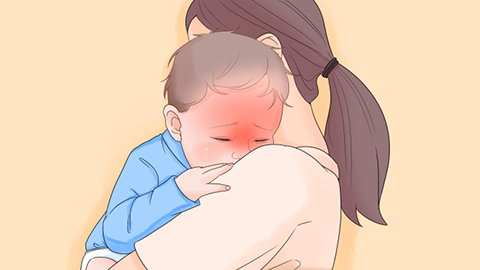What should I do if my 11-month-old baby has a fever of 39.5°C?
Generally speaking, fever refers to an elevated body temperature. A body temperature of 39.5°C in an 11-month-old infant may be caused by conditions such as influenza, acute gastroenteritis, acute bronchitis, pneumonia, meningitis, and other factors. Prompt treatment according to the specific cause is necessary, including general care and medication. If the condition is severe, timely medical attention is required. Detailed analysis is as follows:

1. Influenza
Influenza is caused by infection with the influenza virus. When an infant's immune system is weak, viral invasion may cause an increase in body temperature, leading to fever. Symptoms such as coughing and phlegm production may also occur. Prompt treatment according to medical advice with medications such as oseltamivir phosphate granules, Lianhua Qingwen granules, and ibuprofen injection is necessary. Additionally, increased water intake is recommended to assist in reducing fever.
2. Acute Gastroenteritis
Acute gastroenteritis may be related to improper diet or bacterial infection. These factors can irritate the gastrointestinal mucosa, causing acute inflammatory damage and persistent high fever. Symptoms such as diarrhea and vomiting may also occur. Treatment under a physician's guidance with medications such as cefixime granules, montmorillonite散 (smectite), and Enteritis Ning syrup may be necessary. After each bowel movement, it is important to promptly clean with warm water to prevent bacterial residue.
3. Acute Bronchitis
Acute bronchitis is often associated with bacterial or viral infections. After pathogens invade the infant's body, they trigger an immune response that may cause high fever. Common symptoms include headache, runny nose, and nasal congestion. Medications such as ibuprofen suspension, acetaminophen oral solution, and Pulike Syrup may be used under medical guidance. The diet should be light, avoiding spicy or irritating foods.
4. Pneumonia
Pneumonia is usually caused by infection of the lungs by bacteria, viruses, or other pathogens. Stimulation by these pathogens may lead to the aforementioned symptoms, along with fatigue, drowsiness, and coughing. Treatment with medications such as ibuprofen granules, azithromycin granules, and Chuanbei枇杷膏 (Loquat Cough Syrup) should follow a physician's recommendations.
5. Meningitis
Meningitis is also associated with infection by bacteria or viruses. When pathogenic microorganisms irritate the meninges and spinal cord, inflammation occurs, leading to high fever. Symptoms such as chills and vomiting may also occur. Treatment under medical guidance with medications such as mannitol injection, diclofenac sodium injection, and amphotericin B for injection may be necessary. Adequate rest is important to avoid sleep deprivation, which may affect disease management.
Appropriate treatment should be selected promptly based on the cause of the infant's fever. Medication should not be taken without identifying the cause. Additionally, during treatment, maintaining good indoor ventilation is important to reduce the risk of cross-infection.




